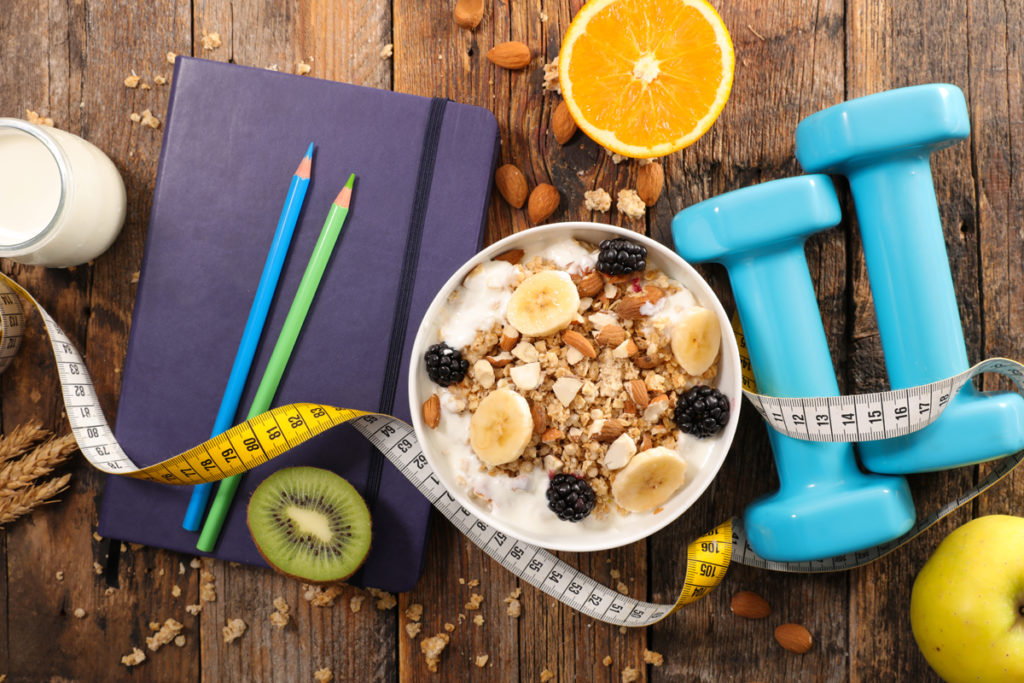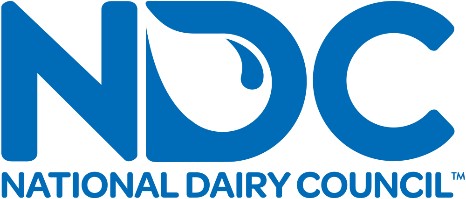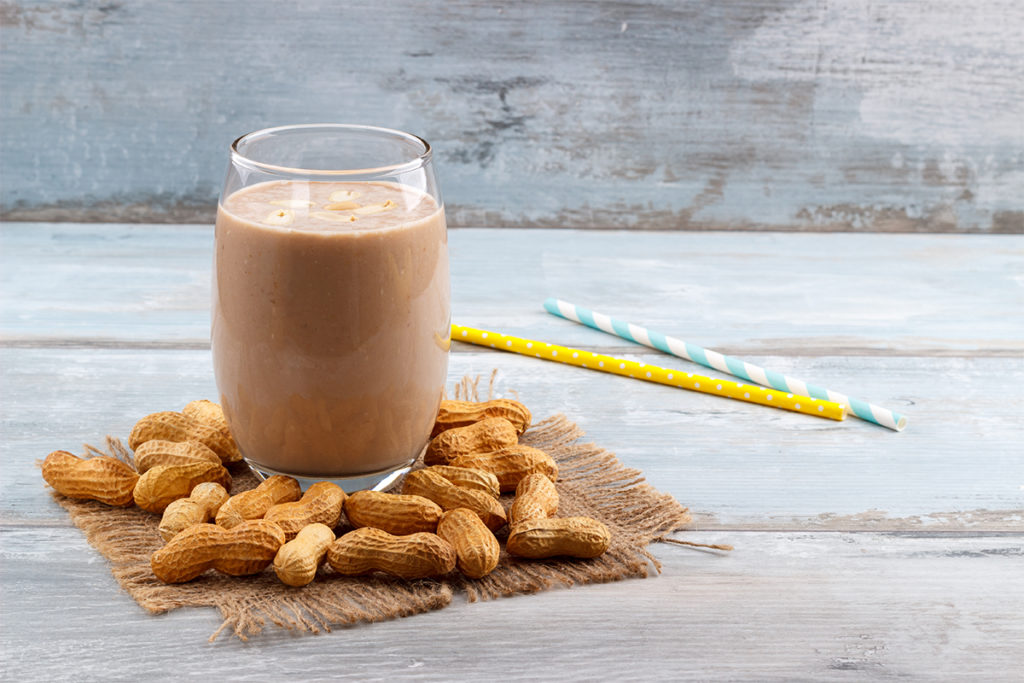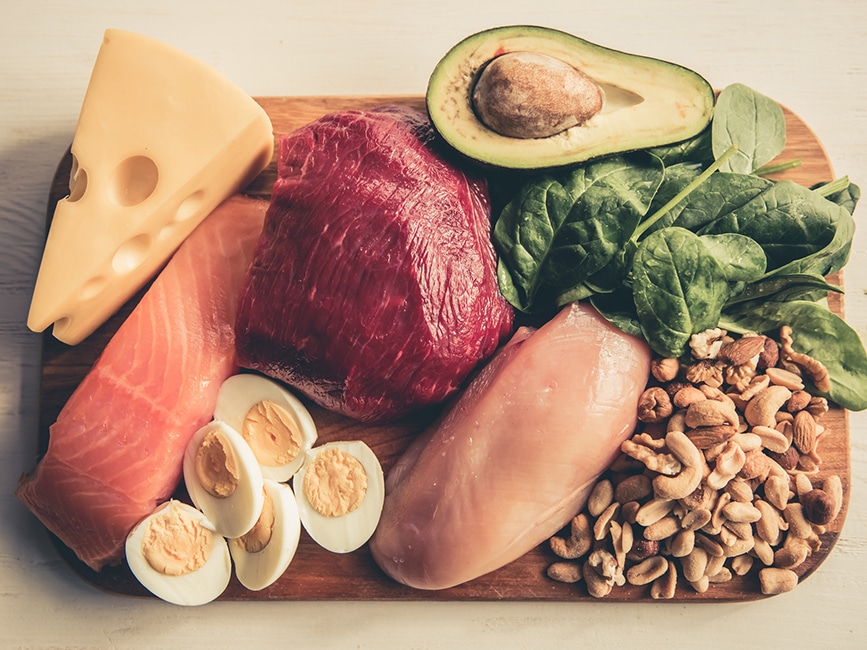Sponsored Content
3 Benefits of Dairy for Workout Recovery
Many nutrients in dairy foods help support exercise recovery like high-quality protein, carbohydrates, fluids and electrolytes.

When most people think of dairy foods, they think of building strong bones. However, there are many nutrients in dairy foods that help support exercise recovery, such as protein for muscle repair and rebuilding, carbohydrates (in the form of lactose) for replenishment of glycogen stores, and fluids and electrolytes for restoring hydration (Thomas, Erdman, & Burke 2016). Plus, current research suggests that dairy foods and dairy protein ingredients (like casein and whey) can help improve body composition (Josse et al. 2010; Hartman et al. 2007; Bridge et al. 2019; Ferguson-Stegall et al. 2011a; Volek et al. 2013), strength (Josse et al. 2010; Bridge et al. 2019), aerobic fitness (Ferguson-Stegall et al. 2011a; Knuiman et al. 2019) and exercise performance (Lunn et al. 2012; Ferguson-Stegall et al. 2011b).
Checkout three surprising benefits of dairy foods when it comes to refueling and rehydrating after a workout!
#1: Rehydration
Nutrition and rehydration after exercise can help with recovery and may improve future exercise performance (Thomas, Erdman, & Burke 2016). Both milk and chocolate milk have been shown to help with muscle recovery after a workout, but some research suggests that milk may also be better for rehydration when compared to a carbohydrate and electrolyte beverage alone (Seery & Jakeman 2016; Volterman et al. 2014).
A small study in the British Journal of Nutrition (Seery & Jakeman 2016) investigated whether drinking milk after a bout of dehydrating exercise would help restore fluid balance more than other beverages. The researchers found that, likely due to the nutrient package it provides, drinking milk did restore fluid balance better than water or a carbohydrate electrolyte beverage. These findings support previous studies performed in adults and children (Volterman et al. 2014) which are summarized in the handout found here.
#2: Improve Body Composition & Aerobic Fitness
When most exercisers and athletes think of adding protein to their diets, they typically associate the benefits in the context of resistance training. Very few studies to date have investigated/demonstrated a benefit with endurance exercise. However, a 2019 study took young, moderately active men and put them on a 10-week endurance training program (Knuiman et al. 2019).
In addition to their regular diet, study participants consumed about 29 grams of dairy protein (casein) every day before sleep on non-training days. On training days, study participants consumed an additional 29 grams of dairy protein (casein) immediately following exercise, as well as the 29 grams before sleep (about 60 grams total in addition to their regular diet). Control study participants consumed a calorie matched carbohydrate replacement on all days in addition to their regular diet. After the 10 weeks, the group consuming more dairy protein had enhanced improvements in aerobic fitness and body composition as compared to the control (carbohydrate-only) group. This study suggests that a higher protein diet may be warranted for certain physiological improvements which can be seen with realistic exercise routines/programs.
#3: It’s Not Just About Milk
We know that milk and/or whey protein plus resistance exercise can increase strength and muscle size and optimize body composition in adult males and females. But do other dairy foods have the same effect?
Greek yogurt contains similar muscle-supporting nutrients as milk, yet differs by being a semi-solid food, containing bacterial cultures and having a higher protein content (mostly casein) per serving. While it had previously not been investigated, a 2019 (Bridge et al. 2019) 12-week study showed that supplementing a 3-day per week plyometric strength training program with Greek yogurt resulted in improved strength, muscle thickness and body composition when compared to a carbohydrate-based placebo. Study participants consumed Greek yogurt (20 grams protein per serving) three times a day on training days and two times a day on non-training days.
The results of the study indicate that Greek yogurt can be an easy, nutrient-rich way to refuel post-exercise.
Are you interested in being kept “in the know” on new dairy information and research like what’s summarized here? Then consider joining the Dairy Nourishes Network today!
References
Bridge, A., et al. 2019. Greek yogurt and 12 weeks of exercise training on strength, muscle thickness and body composition in lean, untrained, university-aged males. Frontiers in Nutrition, 6 (55). https://www.ncbi.nlm.nih.gov/pmc/articles/PMC6503736/
Ferguson-Stegall, L., et al. 2011a. Aerobic exercise training adaptations are increased by postexercise carbohydrate-protein supplementation. Journal of Nutrition and Metabolism, 2011. https://www.ncbi.nlm.nih.gov/pmc/articles/PMC3136187/
Ferguson-Stegall, L., et al. 2011b. Postexercise carbohydrate-protein supplementation improves subsequent exercise performance and intracellular signaling for protein synthesis. The Journal of Strength & Conditioning Research, 25 (5), 1210–24. https://insights.ovid.com/crossref?an=00124278-201105000-00004
Hartman, J.W., et al. 2007. Consumption of fat-free fluid milk after resistance exercise promotes greater lean mass accretion than does consumption of soy or carbohydrate in young, novice, male weightlifters. The American Journal of Clinical Nutrition, 86 (2), 373–381. https://academic.oup.com/ajcn/article/86/2/373/4633050
Josse, A.R., et al. 2010. Body composition and strength changes in women with milk and resistance exercise. Exercise Metabolism Research Group. Hamilton, ON: Department of Kinesiology, McMaster University. https://www.ncbi.nlm.nih.gov/pubmed/19997019
Knuiman, P., et al. 2019. Protein supplementation elicits greater gains in maximal oxygen uptake capacity and stimulates lean mass accretion during prolonged endurance training: a double-blind randomized controlled trial. The American Journal of Clinical Nutrition, 110 (2), 508–518. https://academic.oup.com/ajcn/article-abstract/110/2/508/5523194?redirectedFrom=fulltext
Lunn, W.R., et al. 2012. Chocolate milk and endurance exercise recovery: protein balance, glycogen, and performance. Medicine & Science in Sports & Exercise, 44 (4), 682–691. https://insights.ovid.com/crossref?an=00005768-201204000-00015
Seery, S. & Jakeman, P. 2016. A metered intake of milk following exercise and thermal dehydration restores whole-body net fluid balance better than a carbohydrate–electrolyte solution or water in healthy young men. British Journal of Nutrition, 116, 1013–1021. https://www.cambridge.org/core/journals/british-journal-of-nutrition/article/a-metered-intake-of-milk-following-exercise-and-thermal-dehydration-restores-whole-body-net-fluid-balance-better-than-a-carbohydrateelectrolyte-solution-or-water-in-healthy-young-men/1124729E49B3AC434876B15A9DF7F770/share/dc1b070ba4fb9c7e6bb64046dfdd7b9e60276e57
Thomas, D.T., Erdman, K.A., & Burke, L.M. 2016. American college of sports medicine joint position statement. Medicine & Science in Sports & Exercise. 48(3):543–568. https://www.ncbi.nlm.nih.gov/pubmed/26891166
Volek, J.S., et al. 2013. Whey protein supplementation during resistance training augments lean body mass. Journal of the American College of Nutrition, 32 (2), 122-35. https://www.ncbi.nlm.nih.gov/pubmed/24015719
Volterman, K.A., et al. 2014. Effect of milk consumption on rehydration in youth following exercise in the heat. Applied Physiology, Nutrition, and Metabolism, 39 (11), 1257-1264. https://www.nrcresearchpress.com/doi/10.1139/apnm-2014-0047#.Xd2VDOhKg2w






